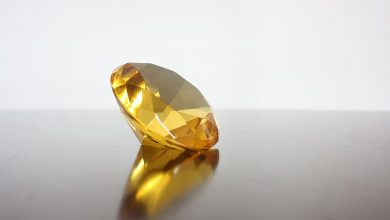Nitrile Gloves- A Complete Guide!

What are nitrile gloves, and why should you use them? Nitrile Gloves are the best alternatives to latex gloves and vinyl gloves. Nitrile disposable gloves often have many benefits over latex or vinyl with minor skin irritation and a lower risk of allergic reactions. What are Nitrile Gloves, and why should you use them? Nitrile gloves are the best alternatives to latex gloves and vinyl gloves. These gloves offer many benefits over latex, vinyl with minor skin irritation, and a lower risk of allergic reactions. While nitrile gloves cannot be used with all substances, they can successfully handle many tasks, from using toxic chemicals in laboratories to preparing dishes in restaurants or the kitchen. This nitrile gloves guide will help you to decide if it’s time to say goodbye to latex gloves or not.
Here Are Some Of The Benefits Of Using Nitrile Gloves:
1: Stronger than latex with more puncture resistance. 2: Latex-Free, Protein-Free, and Allergy-Free. 3: High level of sensitivity. 4: Offers excellent fit molding to the hand. 5: Great for use in high-risk situations and gives excellent barrier protection. 6: Strong chemical protection and resistance. 7: Provides you to stay protected from infectious materials and hazardous chemicals. 8: Highly resistant to oils, fats, and petroleum-based products. 9: Becomes more comfortable with improved agility. 10: Long-lasting, durable and flexible. 11: Lightweight, breathable, and easy to use. 12: Available in powdered and powder-free. 13: Can be worn for more extended periods. 14: Affordable option for higher-level of protection. 15: Long-shelf life  .
.
Is Nitrile suitable for all applications?
The mechanics mainly use XXL Nitrile gloves, where the grip is needed when smeared with oils and lubricants. There are situations where other options make more sense, and the most common glove in the food handline is a vinyl or polyethylene glove. These are mainly very inexpensive, and the application only prevents contamination. Thus, durability, grip, and tactility are not required for practical use. Similarly, latex gloves are commonly used for cleaning applications due to their softness and low cost, where a simple barrier to unwanted material is needed. The difference is nitrile gloves are suitable for all these applications. You can also get the long gloves rubber and protect your hands from allergies.
Why Use Nitrile Gloves?
Its properties are highly appropriate for healthcare applications. By comparison, latex potentiates a relatively high likelihood of allergies because it is a natural material; further comparison wearing nitrile gloves is essential. These properties in other materials are hard to reach because they will sacrifice one other property to another. Nitrile gloves provide you all the qualities in one glove, retain their shelf-life, and provide ultimate durability. It also provides another exceptional quality and superior chemical resistance. In most medical applications, the user needs ultimate protection while retaining usability. This protection can only be made possible where vinyl and latex gloves would dissolve or corrode.
Is Nitrile suitable for all applications?
Nitrile is used even by mechanics, where the grip is needed when smeared with oils and lubricants. There are some situations where other options make more sense, and the most common glove in food handling is a vinyl or polyethylene glove. These are mainly very inexpensive, and the application only prevents contamination. The durability, grip, and tactility are not required for practical use; similarly, latex gloves are commonly used for cleaning applications due to their softness and low cost. Where a simple barrier to unwanted material is needed, the difference is nitrile gloves are suitable for all these applications. Latex Gloves: These gloves contain natural rubber and have been around for a long time. They are very flexible, comfortable, and fit snugly; hence, they don’t hinder the wearer’s sensitivity. They create a barrier against bacteria and viruses and are waterproof to a great extent. Also, they are trendy and possibly the only choice until the advent of polymer or plastic gloves. Vinyl gloves contain a synthetic polymer that is cost-effective and comfortable; some call it synthetic rubber. It also protects from chemicals, fluids, and germs to a large extent, but this is less effective than gloves.
Nitrile Gloves
The gloves contain synthetic polymer material, and they are stretchy and comfortable. These gloves are also durable against stress and long work hours across different industries. The gloves are successful in providing a barrier to chemicals and biological germs. It is the more popular choice of material these days. The material resembles latex due to its stretchiness and is durable, and does not tear easily. However, it is slightly more expensive than vinyl gloves and provides more protection against chemicals, bacteria, and other minute germs. If you compare all the different types of gloves, then you will see that gloves are the best option for people across industries. 1: They are cost-effective. 2: It doesn’t trigger allergies in people. 3: They provide the best protection among the available synthetic gloves. 4: They are comfortable and stretchy and don’t hamper sensitivity to a great extent. When using Nitrile, gloves are highly appropriate for healthcare applications, and by comparison, latex potentiates a relatively high likelihood of allergies. And due to the natural material present, these are best to use. Latex gloves may hide a puncture because the elastic material can conceal the breach and increase the danger of contamination if the gloves aren’t changed immediately. Mechanics and other professionals use heavy chemical oils and greases. Nitrile, just like latex and vinyl, is a waterproof substance, so you can work without worrying about your gloves getting soaked and weakening. You can wear using nitrile gloves to make your hands waterproof any time when it is needed. Nitriles can withstand a temperature and makes them ideal for professions. Most industries use nitrile gloves which are the preferred choice since they offer protection from sudden heat without melting or becoming brittle.






